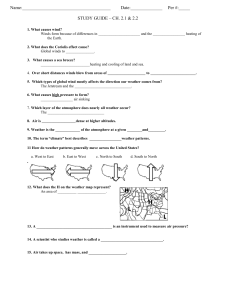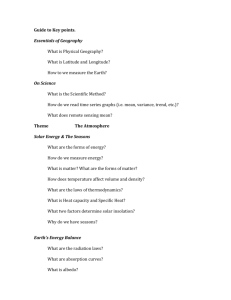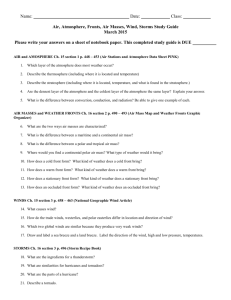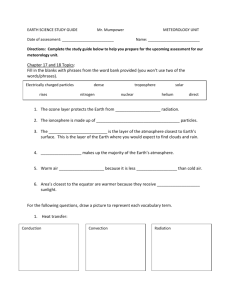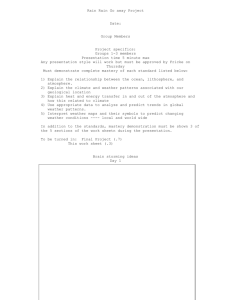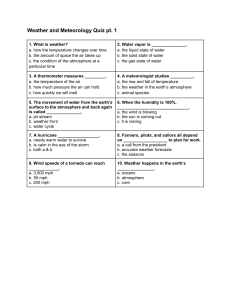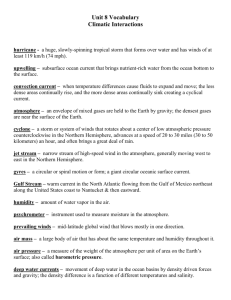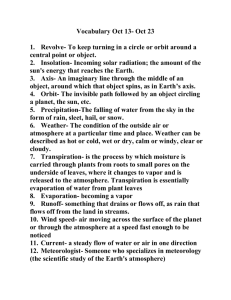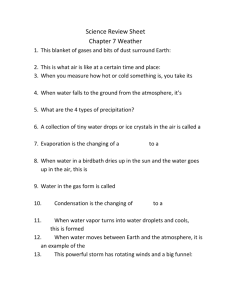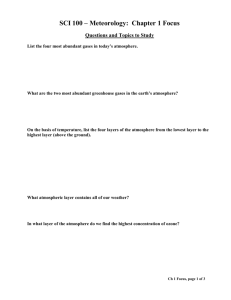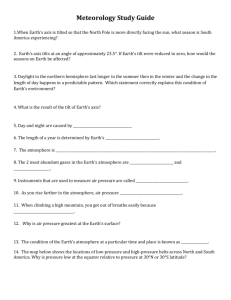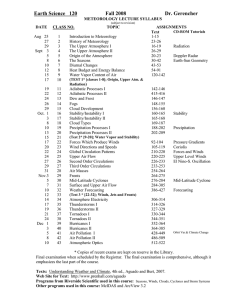Meteorology CP
advertisement
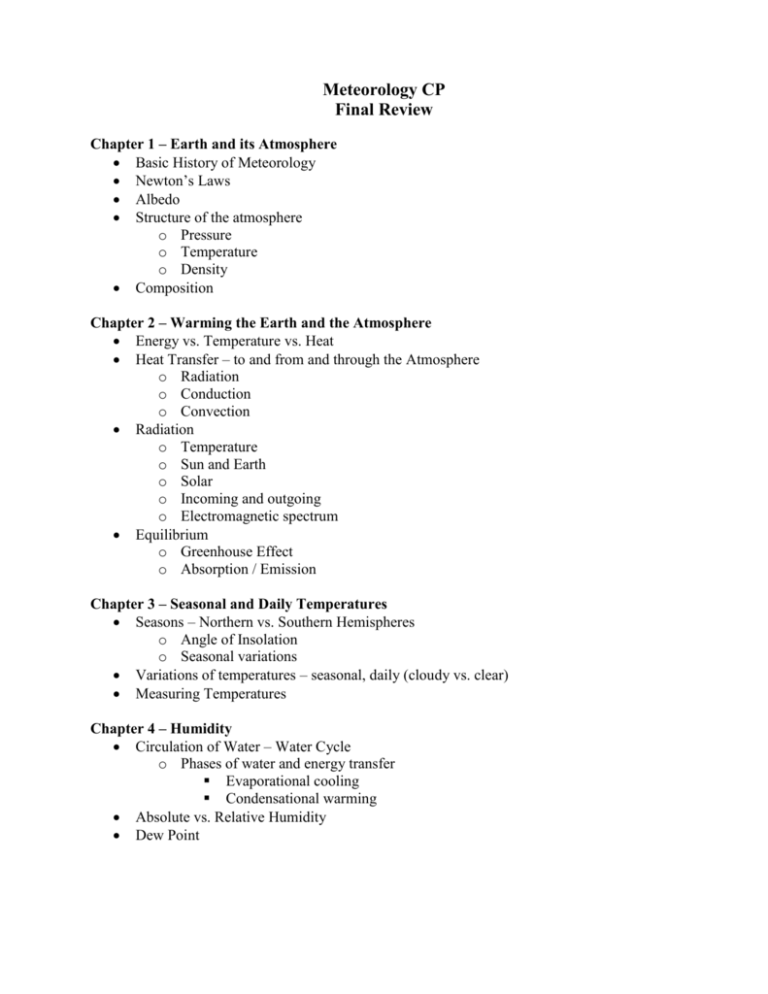
Meteorology CP Final Review Chapter 1 – Earth and its Atmosphere Basic History of Meteorology Newton’s Laws Albedo Structure of the atmosphere o Pressure o Temperature o Density Composition Chapter 2 – Warming the Earth and the Atmosphere Energy vs. Temperature vs. Heat Heat Transfer – to and from and through the Atmosphere o Radiation o Conduction o Convection Radiation o Temperature o Sun and Earth o Solar o Incoming and outgoing o Electromagnetic spectrum Equilibrium o Greenhouse Effect o Absorption / Emission Chapter 3 – Seasonal and Daily Temperatures Seasons – Northern vs. Southern Hemispheres o Angle of Insolation o Seasonal variations Variations of temperatures – seasonal, daily (cloudy vs. clear) Measuring Temperatures Chapter 4 – Humidity Circulation of Water – Water Cycle o Phases of water and energy transfer Evaporational cooling Condensational warming Absolute vs. Relative Humidity Dew Point Chapter 5 – Clouds 3 basic clouds families o Altitude o Basic description Chapter 6 – Atmospheric Stability Stable Atmosphere Unstable Atmosphere Lapse Rates (Environmental, Dry Adiabatic, Moist/Wet Adiabatic) Cloud development Lifting Condensation Level Lifting mechanisms (Orographic, Convection, Convergence, Frontal) Chapter 8 – Air Pressure and Winds Horizontal Pressure Variations o Surface o Upper Atmosphere o Relation of the two above Newton’s Law Pressure Gradient Force (High to Low) Coriolis Geostrophic Winds (Flow parallel to the isobars) Chapter 9 – Small Scale and local winds Wind measurement Eddies / Air pockets Sea / Land Breeze Valley / Mountain Breeze Chinook wind Katabatic wind Santa Ana wind Additional Global winds Basic symbols on weather maps Basics of extreme weather o Tornadoes o Hurricanes o Thunderstorms o Blizzards o Floods/Droughts o El Nino/La Nina
